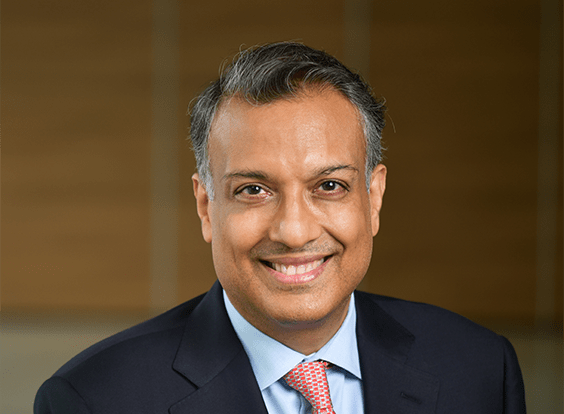Leaders from politics, business, academia and international organisations once again gathered in Davos last week, to tackle global issues and shape the global agenda. As it turned out, three topics dominated nearly every conversation – conflict, climate change and the advance of AI. As I reflected on what all this means for the countries in the global south, I arrived at five take-aways.
Some emerging economies like India and Vietnam are beacons of global growth this year: Six of the top-10 performing economies in the world in 2024 are forecast to come from Sub-Saharan Africa, according to the International Monetary Fund. Larger economies like India and Vietnam are the other ones that are likely to clock over 6% growth. All of this will be in a context when the global growth is expected to be around 3% in 2024 and 3.1% in the next 5 years. Major advanced economies are likely to achieve less than 2% GDP growth.
Economic slow-down in advanced economies will make it harder to grow exports: Africa and Asia are likely to see a resurgence in merchandise trade volumes in 2024 (after contracting in 2023), but the positive momentum is likely to be relatively small. China, the US, India, the EU and South Africa have been the major export markets of Africa, but all of them barring India are likely to see modest GDP growth. India’s major export to the advanced economies – the information technology services that is worth almost $180 billion – is already looking at a slow-down.
Artificial intelligence can drive economic growth through potential productivity gains: Productivity gains have been the most important driver for rapid economic growth over the last 200 years. Artificial intelligence provides an avenue to step up the slow productivity gains across a large swathe of sectors (including disease cures and fossil fuel alternatives). There are risks that it presents, for which we should start thinking of appropriate regulations from now onwards. But the opportunity is large and countries of the global south must lap it up as well, early. Digital literacy and the bringing down the cost of devices capable of operating with artificial intelligence software will be important for doing so.
Commodities markets may see unusual price volatility due to geopolitics: Deep schisms exist between countries at war in Europe and the Middle East. End to these wars will probably be several months down the line. This has already begun to affect trading routes, most notably the Red Sea. While oil prices have not moved significantly yet, prices of other commodities have. Prices of grains imported by Africa from Europe have gone up by 10%. Aluminium prices in global markets have begun to inch up. Numerous sugar refineries in the Red Sea are unable to export, leading to tightness in several domestic markets in Middle East and parts of Africa. About 80 percent of all goods exports to Europe from India are through the Red Sea region and squeezing of the margins due to increased shipping costs is affecting competitiveness.
Larger financial contributions for tackling climate change will need to be fought for: Minister of Economy from Azerbaijan, the host country for the next climate COP was quite clear in his statements at Davos that financing will remain a key area of focus. A rather small sum of USD 700 million was pledged for the Loss & Damage Fund at COP28. This will need to be scaled up by several orders of magnitude, to be meaningful.
Advanced economies are likely to have fiscal space though. If oil prices remain relatively stable, fossil fuel subsidies that were almost USD 1.3 trillion last year globally, are likely to be much lower. In a low GDP growth environment, they will naturally veer towards using their fiscal space to provide stimulus packages for domestic economies. Countries of the global south will need to collectively work through the year to ensure that a reasonable proportion of this fiscal space is used to pledge more climate financing for the Loss and Damage Fund or towards new climate financing.
Energy transition is likely to continue despite upcoming national elections, but more needs to be done to channel capital to emerging economies: Globally, energy transition has picked up momentum. It provides an avenue for economic growth, so upcoming elections in almost 70 countries are not likely to change the momentum. But capital remains costly. During discussions in ReNew’s Annual Leadership Forum, five actions were identified as critical to channel more capital to emerging economies. One, countries must learn from good examples like India, that has recognised the opportunity in clean energy transition and is going ahead with a combination of mandates and incentives, regardless of historical obligations. Two, transparency of data of the utilities and subsidies is important for investors to objectively assess risks, opportunities and returns in the emerging economies. Three, given rapidly rising investments for metals and minerals, Governments must act to improve governance of this sector to avoid corruption risks, as well build confidence among investors. Four, insurance and warranties are critical to reduce cost of funding. Project sponsors need to be supported to ensure projects are clear and designed in a manner that is suitable for insurance management. Five, Multilateral Development Banks must work much more closely with governments, investors, project sponsors and capital market players to devise innovative financing instruments to de-risk investments in emerging economies.



